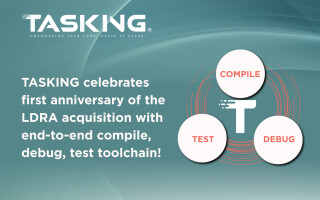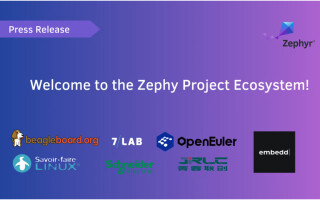Open Source Safety Systems Are Now Viable for SDV, Says Elektrobit
April 23, 2024
Story

The Software Defined Vehicle (SDV) is the automotive buzzword of the year so far, but most of what we’ve been seeing is either infotainment, or prognostication and promise about Ai-driven automated cars of the future.
The reason for that is simple: vehicles have regulatory and safety standards that must be met, and many SDV products currently out there either don’t meet or don’t dress those standards.
In an announcement this morning, Elektrobit has unveiled what its calling an “open-source breakthrough” for SDV that is an automotive Linux OS solution, specifically designed for safety applications and luff lifecycle maintenance.
The EB corbos Linux for Safety Applications is reportedly fully assessed to be compliant with automotive functional safety standards, and the company says it has received a positive technical assessment for the safety element out of context (SEooC) based on safety standards ISO 26262 ASIL B and IEC 61508 SIL 2.
This is a big deal for automotive OEMs that want to put more embedded computing and software controls into their vehicles. Not having to wall off safety systems introduces huge opportunities for efficiencies of code and physical hardware. What’s more, and the clear advantage from the OEM and developers’ points of view, is that this Linux OS is going to speed time to market by streamlining software modelling, debugging, and deployment.
“This is big time,” said Moritz Neukirchner, Senior Director of Strategic Product Management for SDV at Elektrobit. “The value of SDV is in the speed of development and now we’re applying the same safety mechanisms that have worked for decades to the OS.”
Most tech industries are already using free open-source software (FOSS) at the operating system level, at least. It’s flexible, well-supported, and established. Automotive has been lagging behind because of its strict safety requirements. Now, Elektrobit says, automotive OEMs and their suppliers can use any Linux kernel, even in safety-related high-performance computing (HPC) functional domains like advanced driver-assistance systems (ADAS) and autonomous vehicles (AV).
They accomplished this by layering the standard driven safety software on top of the OS.
“It’s never been done before,” Neukirchner said. “We get between the application layer and the OS. Linux is secure and reliable, but for safety systems you have to prove it’s safe. [With this solution] there’s no need to change standards for SDV. We don’t require that. We’re already compliant.”
The company says EB corbos will also be applicable to other safety-conscious verticals like healthcare, machine engineering, and energy.
The lifecycle management and faster development times are a big deal to Elektrobit, because they see these as key challenge points for their customers. With that in mind, the company has said EB corbos will come with up to 15 years of maintenance to ensure security throughout the product’s lifetime, and it will drive an “up to 50 percent faster time to market” according to the release.
Mike Robertson, Chief Product Officer and Managing Director at Elektrobit said, "The end user should see more and improved software-defined vehicles on the road sooner. And just like they are used to from their phones, they will receive over-the-air updates to their vehicles over the entire life cycle, with carmakers able to deploy quickly and cost-effectively."
Both Arm and Canonical have gotten on board and partnered with Elektrobit on this project.
"The automotive industry is undergoing a massive shift with advanced driver experiences, electrification, and autonomy driving a need for more compute, software, and AI," said Dipti Vachani, SVP and GM, Automotive Line of Business at Arm. "Safety is non-negotiable in the mobility sector, and Arm and other industry players collaborating with Elektrobit to fill the gap for a safety-certified OSS solution marks a significant milestone in the development of software-defined vehicles."
"We are excited to contribute to Elektrobit’s groundbreaking initiative to close the gap between safety-critical requirements and open-source software," said Bertrand Boisseau, Automotive Sector Lead at Canonical. "The introduction of EB corbos Linux for Safety Applications, which leverages Ubuntu, marks a significant advancement in the field of software-defined vehicles. This innovative solution paves the way for the development of safer and more reliable vehicles, pushing the automotive industry forward."
For Elektrobit, the key to successful SDV is two-fold. OEMs want speedy development cycles so they can get new vehicles on the road and in customer’s garages, and customers (and regulators) require long lifecycles with reliable support and updates throughout. corbos is designed to address both challenges, Neukirchner said. “Open source is the key to get that speed of development the OEMs want, and we also want to give consumers the ability to upgrade over the life of the vehicle. When you buy a car, that shouldn’t be the best day with that car. It should get better.”
EB corbos Linux for Safety Applications is available now.





